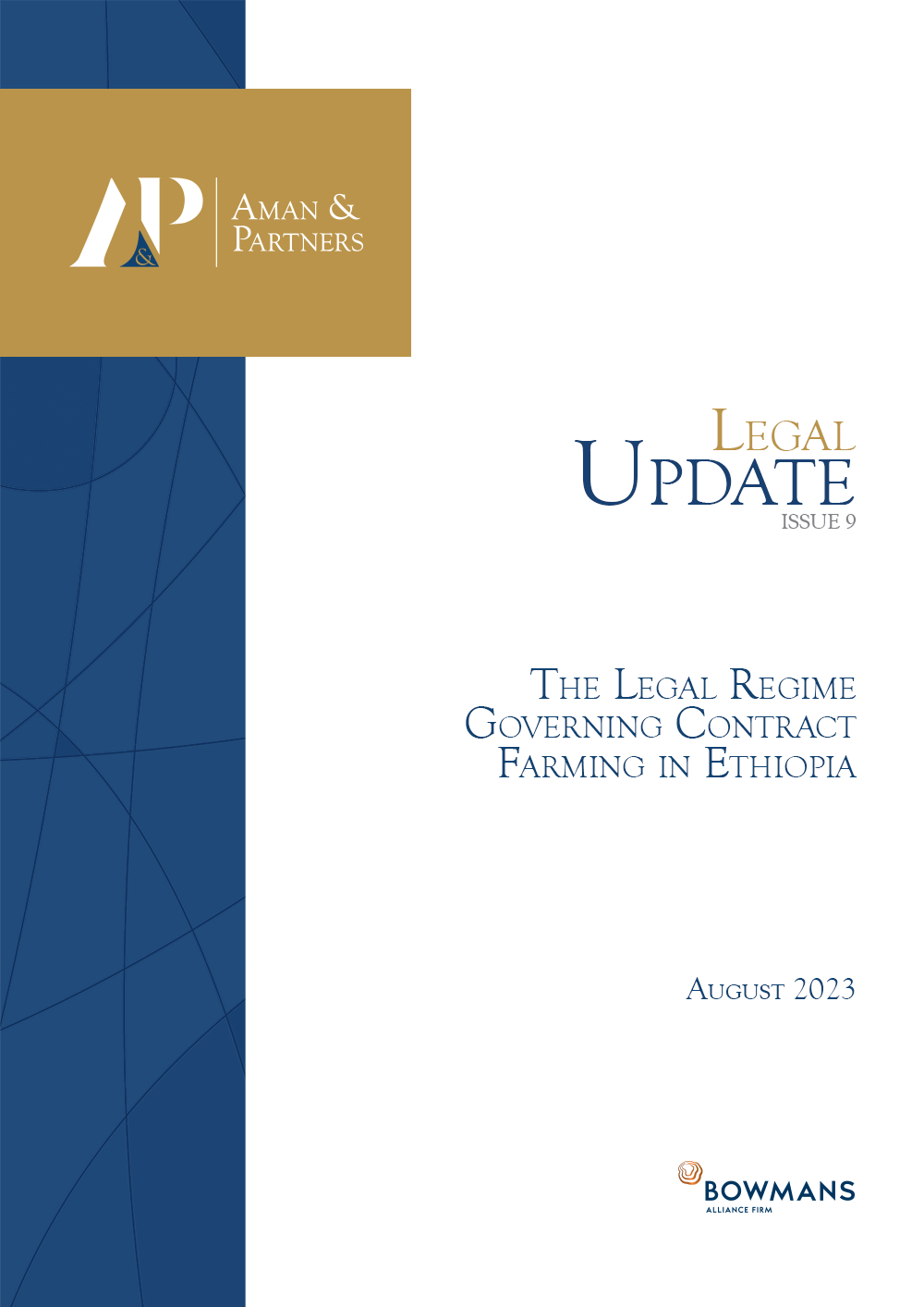Introduction
Issuing new shares is commonly used as a mechanism to increase capital and implement a desired shareholding/equity structure needs of a company. Under the 2021 Ethiopian Commercial Code (New Commercial Code), shares can only be issued at par value or at a price greater than the par value. The New Commercial Code does not permit new shares to be issued at a price lower than the par value (the par value of a share is set in the memorandum of association of a company). In circumstances where shareholders decide to issue new shares at a price greater than the par value, the difference between the par value and the greater price at which it is issued becomes the premium amount.
This legal update has two sections. The first section discusses whether or not tax will apply on premium amount when new shares are issued. The second section addresses the recent changes introduced by the New Commercial Code on the utilization of fund generated from the issuance of premium shares.
The focus of discussion in this legal update is limited to premium amount obtained through issuance of new shares and does not cover premium amount resulting from the transfer of existing shares.
Tax on Premium Amount
There has been a cloud of uncertainty on the tax treatment applied to the premium amount on newly issued shares. The Federal Income Tax Proclamation (ITP), Tax Administration Proclamation (TAP) and Income Tax Regulation (ITR) fail to directly address and regulate the applicable tax, if any, for premium obtained from newly issued shares.
Over the past decade a significant number of brown field foreign equity investments have been structured through a premium arrangement whereby existing businesses would float new shares at a price above the par value resulting in a premium amount. That said, there have been inconsistent and at times ambiguous interpretations in relation to the tax regime on premium shares. In August 2019, the Ministry of Finance issued a Directive addressing this matter. According to this Directive, the premium amount was to be treated as a business income and would be subjected to ‘Schedule C’ tax under the ITP. As such the premium generated will be incorporated as an income of the business for the respective financial year.
In an interesting turn of events, an Explanatory Note issued by the Ministry of Finance in October 2021 (Explanatory Note) introduced a new approach that deviated from the Directive issued in 2019. The Explanatory Note provides that a premium generated as a result of newly issued shares are considered as generating gain and as such would be subject to capital gains tax, resulting in a tax of 30% on the premium amount. The varying positions taken in different period had resulted in inconsistent tax applications on businesses.
That said, in August 2022, the Council of Ministers amended the ITR and included a new addition under Article 54 of the Regulation (ITR Amendment) identifying tax exempted incomes. As per the ITR Amendment, premium income generated by companies through the sale of new shares in foreign currency to non-residents is an exempted income. As such, premium income will not be subject to tax, be it as business income tax or as capital gains tax.
Though the ITR Amendment has given a much-desired clarity on whether premium amount should be taxed, the wording of the ITR Amendment suggests that the tax exemption on premium amount applies only when new shares are issued to non-residents and only when the sale of the shares is in foreign currency. As such, the ITR Amendment implies that premium income obtained from the issuance of new shares to residents are not exempted from tax.
Treatment of Premium Reserve Fund
When shares are issued at a premium, the shareholders may decide that the premium amount generated from such transaction be allocated as a reserve fund. Both the repealed 1960 Commercial Code and the New Commercial Code address the creation of a premium reserve fund through the approval of the general meeting of shareholders. As per the 1960 Commercial Code, the beneficiaries of a distribution of a premium reserve fund would be both former and new shareholders. On the other hand, the New Commercial Code entitles only former shareholders to benefit from a distribution of premium reserve fund.
In light of this, shareholders are advised to give due emphasis on the mode of utilization and potential apportionment of investment generated through premium in order to ensure alignment with shareholding structure and financing considerations.
Concluding Remark
The ITR Amendment provides some clarity on the issue of whether premium income generated by companies through the issuance of new shares is taxable. The ITR Amendment provides that income generated through the sale of new shares in foreign currency to non-residents is an exempted income. However, this exemption only applies to premium amounts that result from issuance of new shares to non-residents. What type of tax will be applicable, if any, on premium amounts that result from issuance of new shares to residents continues to be an issue that requires further clarity. Moreover, how the tax regime will treat the acquisition of premium shares by non-residents through the reinvestment of dividends in Ethiopian Birr is an issue that is yet to be explored.
Disclaimer
The information contained in this legal update is only for general information purposes. Nothing herein shall be considered and relied upon as a legal advice or a substitute thereto.





